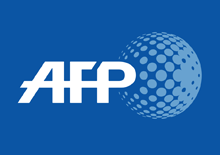"So Where Do We Go from Here?" - Ask e-MFP's Members at European Microfinance Week
LUXEMBOURG, December 4, 2017 /PRNewswire/ --
European Microfinance Week [http://www.e-mfp.eu/european-microfinance-week-2015/information ] concluded Friday in Luxembourg, with a provocative closing plenary that asked where the sector is heading in the next 5-10 years.
EMW is an annual conference run by the European Microfinance Platform [http://www.e-mfp.eu ] (e-MFP), a member-led organisation that comprises over 130 investors, government bodies, consultancies, NGOs, researchers and academics to promote cooperation among European organisations working in developing countries by facilitating high-level debate and research.
This year EMW gathered 490 delegates and speakers from 80 organisations to take part in over 30 sessions such as low-cost technology for financial services providers, responsible exits, reaching scale in inclusive green finance, rural youth and agriculture finance, asset financing & micro-leasing, scaling up African MFIs, and refugee finance. For the first time, there was a TED-style session with individual presentations on "Are smartphones for farmers 'enough'?", "customer empowerment for meaningful financial inclusion", and "the power of central data management in the microfinance industry".
These sessions were complemented by three plenaries, including on "Women clients Inequality women empowerment: beyond the numbers", which argued that pursuing empowerment "requires understanding women and their needs within the environment in which they live..." and another introducing the three finalists of the European Microfinance Award 2017 on Microfinance for Housing, which was won that evening by Cooperativa Tosepantomin, a Mexican cooperative that offers housing savings and loans combined with technical assistance to rural clients.
Ending the conference, Friday's closing plenary brought together Paul DiLeo of Grassroots Capital Management; John Alex of Equitas Small Finance Bank in India; Tim Ogden of the Financial Access Initiative; and Renee Chao-Beroff, of PAMIGA. How will the sector position itself in the next decade? Renee argued that MFIs that see themselves as a means and not an end in impact value chain will be able to innovate, while the others will 'miss the train'. John argued that reaching "massive demand" "will require specialisation and sychronisation of products". Tim was contrarian and critical: "The microfinance movement began with a group of institutions that cared about customers; the current digital providers...care not about providing value but about extracting value". But the increasing involvement of commercial banks will mean microfinance is succeeding in bringing the unbanked into the formal financial system - something e-MFP's members are all working to achieve.
You can find more information on EMW2017 here [http://www.e-mfp.eu/news-and-events/both-optimism-cautionary-tales-european-microfinance-week-wraps ] .
http://www.e-mfp.eu
SOURCE European Microfinance Platform (e-MFP)




